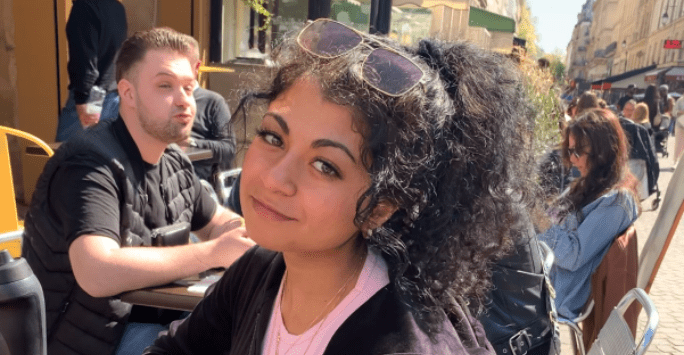
Student Doctor Stephanie Girgis offers her tips and tricks to students wishing to get involved in research, after the recent publication of her retrospective study around prostate cancer.
“As a second year student doctor at the University of Liverpool, I found research to play a very eminent part in the programme. Being integrated as a summative component from Year One, alongside the Public, Preventative, and Global Health (PPGH) theme, students quickly learn the basics of research such as the steps to performing it and the different study designs.
This exposes students to what might become a very integral part of their career as a doctor both in practice (i.e. through clinical trials) and teaching as an academic (if taking on research students).
In April 2021, I worked on a retrospective study that looked at men diagnosed with clinically significant prostate cancer. These patients had also undergone combined MRI-TBx (an MRI scan that gives guidance to the location of a lesion for a transrectal biopsy to be done), plus SBx (a systematic biopsy).
The paper aimed to show that systemic biopsies, which as a procedure come with serious complications, rarely spot any prostate lesions that are not already seen on the MRI, especially if they scored a 5 on the PI-RADS scale (signifying a high likelihood of cancer) or if they had a previous negative biopsy.
As a research clerk, my role was to go through past patient records and record information in a spreadsheet such as the number of lesions on the original MRI, whether an additional systematic biopsy was carried out and the number of lesions on the systematic biopsy.
Exploring possibilities through research
I found the experience to be very enlightening. It was really interesting to follow the train of thought of the urologists and radiographers involved. To plan out the study and their means of achieving their aims, they had to develop a reliable study method, aiming to avoid as many confounders as possible. I also enjoyed joining all the research meetings and feeling part of the team.
From this project, I learned that participating in research can have several different aims. When I was first starting, I assumed that I would have to first pick a specialty that I was set on pursuing and then continue to participate in research in it.
I learned that you could join a team with many different goals in mind: from seeing if a specialty is for you, to gaining lab experience, to developing your network of medical professionals.
Currently, I am most interested in learning how to analyse all the different aspects of data that have been collected and drawing up conclusions that could be applied to future medical practice. I am hoping to become a big part of this on current projects that I am working on now and future projects.
Developing transferable skills
Time management is certainly a skill I use when participating in research. Whilst working on this project specifically during exams, it often became hard to put focus on two demanding aspects of my life at the same time.
I went about developing this skill in many ways: First, I made my colleagues aware that I was in my exam period. They showed understanding about the fact that I could not dedicate as much time as they were to the project. I can almost certainly say that all research supervisors encourage you to put your education as a priority.
The amount of time you want to personally allocate to the project is ultimately your decision.
Second, I developed a timetable to follow for my day. I allocated a few hours a week to the project, a few hours for studying, and a few hours for relaxing and spending time with my friends. That way, I felt in control of my week and avoided stressful situations.
Creating opportunities for yourself
I would advise students to just go for it! I got involved in this research project by emailing certain specialties in local hospitals where I lived and asking if they, or any colleagues they knew, had any room for a research student to join their team.
If there is a certain specialty or topic you are interested in, which you may have developed in a lecture or small group teaching session led by an academic, I would recommend approaching or emailing professionals focused on this area. I would then offer to set up a meeting via Zoom or phone call to get started.
I would also encourage students not to get discouraged if they do not receive a reply, as many researchers have very busy schedules or may not have room to accommodate students on a particular project.
If you are interested in research, the Liverpool Research Society (link) is one to join. This society promotes research in medicine, runs workshops on how to get involved in research, and even conducts conferences alongside researchers at the Liverpool Medical Institute.”
Congratulations Stephanie! The paper ‘Prostate biopsy in the era of MRI-targeting: towards a judicious use of additional systematic biopsy’ is published in the European Radiology journal (2022). See PubMed (link) for further details.